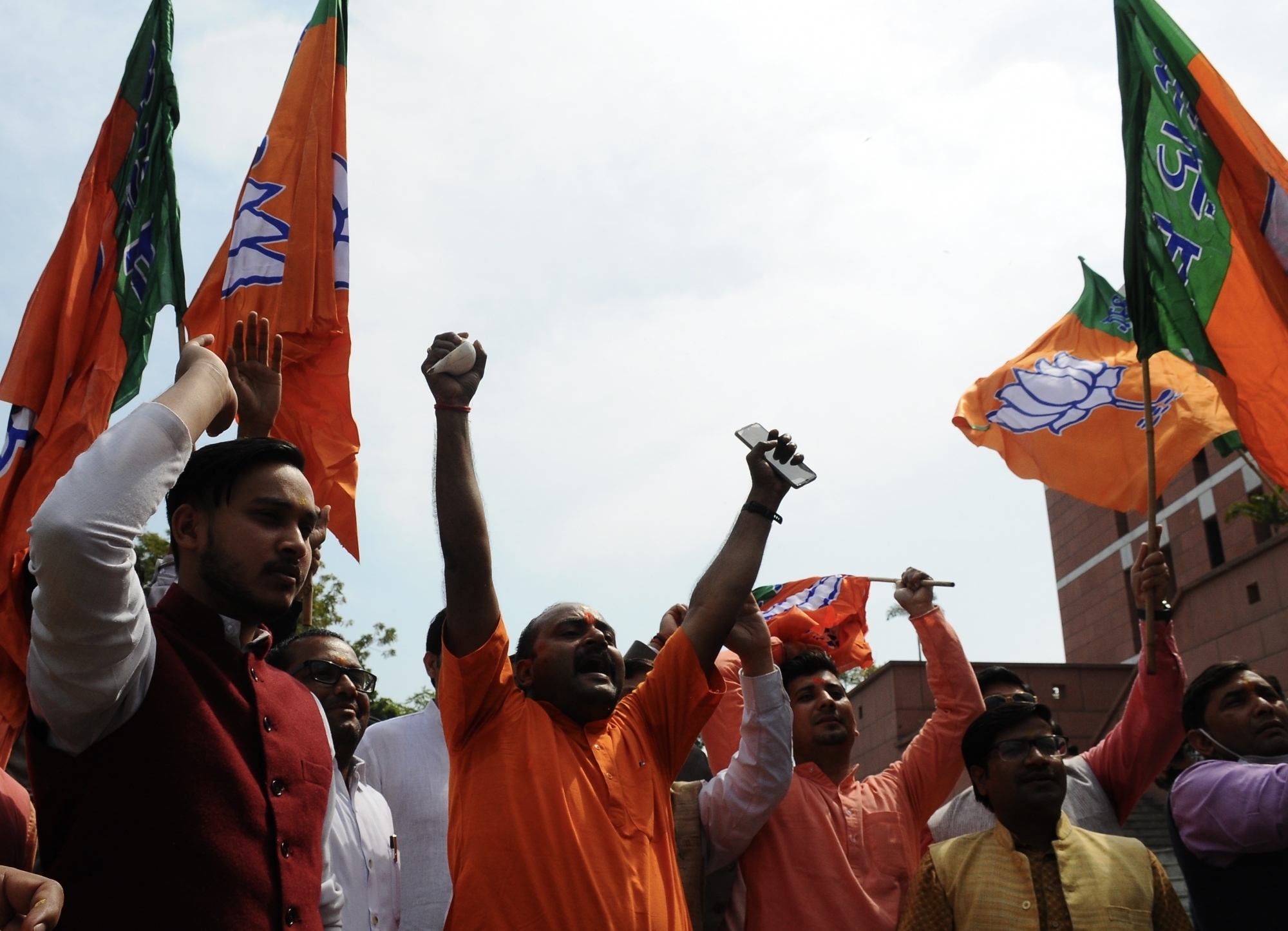SANTOSH KUMAR PATHAK New Delhi, July 17 (IANS) Beginning with two Lok Sabha members, the BJP's political journey that passed through the phases of the Ram Mandir movement, Atal Bihari Vajpayee's coalition era, 'Operation Kamal', successive electoral victories and a Congress-free India campaign, is now headed to create an opposition-free India. After Madhya Pradesh, Maharashtra and now Goa, the opposition parties are continuously attacking the BJP and accusing it of intimidating and suppressing the opposition. Speaking to IANS on these allegations, a BJP leader associated with Maharashtra said that it is very important for a democracy to have a strong opposition, but it does not mean that it is the responsibility of the BJP to strengthen the opposition. He said that the opposition political parties are getting scattered because of their mistakes, so what can the BJP do about it? During his tenure as BJP President, Amit Shah used to often tell party leaders and workers that the time has come that the entire governance system from Panchayat to Parliament should be in the hands of the BJP. At that time, Shah used to cite the example that during the first few decades after Independence, the system from Panchayat to Parliament was in the hands of the Congress and now the BJP's time has come. Calling on the BJP workers to work hard, Shah also used to say that they should think of being victorious from Panchayat to Parliament for 50 years. After the 2019 Lok Sabha elections, Shah became the Home Minister of the country and J.P. Nadda the national President of the BJP, but the party continued on its mission, winning election after election. In the party's national executive meeting held in Hyderabad recently, Amit Shah claimed that the BJP era would prevail in the country for the next 30-40 years. During the 2014 Lok Sabha election campaign, Narendra Modi, who was then nominated for the post of Prime Minister by the BJP, for the first time used the slogan of having a Congress-free India, which later all the BJP leaders would voice in their speeches and rallies. After winning the Lok Sabha election, Narendra Modi became the Prime Minister. Rajnath Singh, who was heading the party at that time, was made the Home Minister by Modi and the then National General Secretary of the party and his closest friend Amit Shah was made BJP President. The duo of Narendra Modi and Amit Shah worked hard to realise the slogan of a Congress-mukt Bharat. Both the government and the BJP together chalked out such a strategy that the party started winning elections one after the other and today the condition of the Congress has become such that it has its own governments in only two states - Rajasthan and Chhattisgarh. The Congress today is weak even in Parliament and also in legislatures across the country. The BJP is also working on a plan to oust the Congress from power in Rajasthan and Chhattisgarh in 2023. But the BJP does not seem to be stopping here. The biggest dream of the BJP is still unfulfilled and that is to saffronise the states of South India as well as West Bengal. The BJP is trying vigorously for expansion in states like Telangana, Tamil Nadu, Andhra Pradesh, Kerala and West Bengal. During the Hyderabad meet Prime Minister Narendra Modi attacked all the parties over dynasty politics, he even termed dynasticism a curse for democratic politics. After decimating the Congress, the BJP is now ready to take on the regional parties. In Maharashtra, the BJP has made its intentions clear by breaking away Eknath Shinde from Uddhav Thackeray and making him the Chief Minister with its support, also sending a signal to the disgruntled leaders of other parties. In fact, it is true that most of the regional parties in the country are dominated by a family and almost every political party has dissident leaders like Shinde. Recently Telangana BJP President, B. Sanjay Kumar had targeted Chief Minister K Chandrasekhar Rao, claiming that there are many like Eknath Shinde in his party TRS. Political experts may call it a new form of 'Operation Kamal', but the stand of the BJP is very clear that it is the responsibility of the leader and president of a particular party to keep their flock united and if they can't do it, then how can the BJP be held responsible for it.
From panchayats to Parliament, is BJP attempting to create a 'vipaksh mukt' India?
- by Rinku
- July 17, 2022 2 minutes

New Delhi: BJP supporters with party flags celebrate party's lead during the counting of votes for the Uttar Pradesh Assembly Polls, in New Delhi on Thursday, March 10, 2022. (Photo: Qamar Sibtain/IANS)











